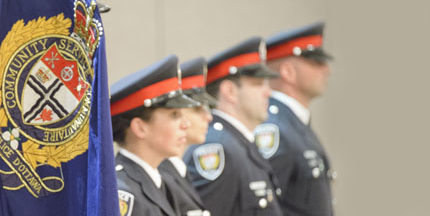What is the crime committed by most cop shows, aside from the pervasive though unproven “bad apples” theory? It isn’t just that they’re copaganda, as John Oliver says in a boisterous takedown of the uber cop show, Law & Order. It’s been around longer than half the world’s population: 32 years, with over 1,250 episodes aired across the franchise.
Their subtler mistake, I’d say, is misrepresenting the workplace. TV cops are too eager to toss their sandwiches onto the back seat and respond to calls of crimes in progress. They rarely drag their butts slowly into perilous situations or try to do the least work possible. They react to crimes as if they’re moral or existential events, rather than opportunities to get ahead or avoid making career missteps. They are, in other words, insufficiently similar to characters on The Office.
In the real world — as in other “helping” institutions like medicine and teaching — some do join for noble motives, but everyone inevitably faces career concerns. Those at the top normally get there by being mediocre, sucky, glib, jargonistic or corrupt, though good folks occasionally slip through — perhaps by hiding their best traits, even from themselves, till they reach upper levels and can exhale.
What would a more honest cop show look like? It might start by gleaning materials from this week’s hearings at the convoy inquiry, where higher-echelon cops have been testifying. It’s illuminating.
- No top cop will say they couldn’t have solved the occupation of Ottawa without an emergency declaration. That’d be no way to get ahead, admitting you’re not up to the task. So we got avowals of how they all had a plan that could’ve worked, though the declaration definitely helped. Talk about having it both ways. RCMP boss Brenda Lucki said she hadn’t yet exhausted all her options. Now we’ll never find out, will we? The only one saying he couldn’t fix it with a brilliant plan was Ottawa police chief Peter Sloly, who lost his job.
- The plan to move trucks off “residential” streets and onto Wellington in front of Parliament was a real shemozzle. It would “shrink the footprint” and lift pressure on residents and businesses, but also put the protest right in Justin Trudeau’s (symbolic) face, which parliamentary cops rightly feared. It was like begging for a U.S. Capitol riot repeat. I can imagine convoy leaders saying, Please don’t throw us into the briar patch on Wellington.
- The “liaison” cops, who specialize in “communicating” with protesters, wanted a chance to show their stuff. They live in a silo that’s under pressure to prove its worth. But they were also vulnerable to manipulation or cross-currents among protesters and last minute reversals. They had an impossible set of variables to pull together. They too can cheerily claim it might’ve worked.
- There were cop witnesses who seemed slick and calculating and others who looked tired and saddened, as if they were near career’s end and couldn’t be bothered playing the game. At times they followed each other on the stand.
I’d watch a cop show that incorporated components like that, though I’d watch almost any cop show — or give it a try. Why? For reasons I think many people do: not escapism or romanticization, but because you want to believe that those with power, including the power to hurt people, are on the side of good and justice. It’s almost unbearable to think they aren’t.
Occasionally, a cop show admits how obdurate the reality is and that quitting can sometimes be the only way to stay honest. That happened this year on BBC’s Shetland, when (spoiler ahead) detective Jimmy Perez quit the job he loved, after helping an innocent man escape a dreadful fate. This being fiction, he’d also fallen in love — but when asked if he was doing it for her he said No, and it had the ring of truth. Also, this being TV, there will be a season eight, but without Jimmy. We wouldn’t live very long or happily without fiction.
This column originally appeared in The Toronto Star.



